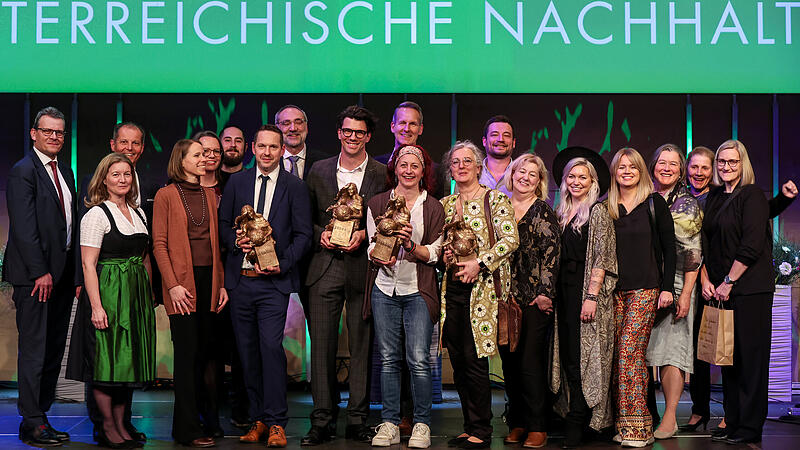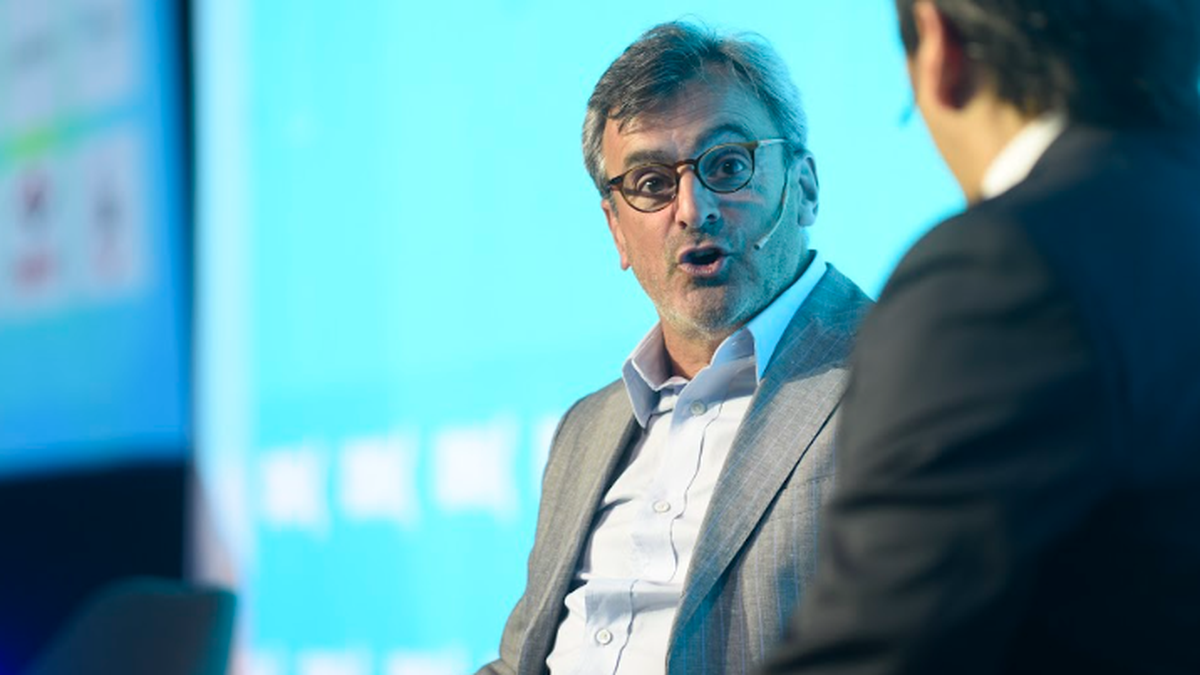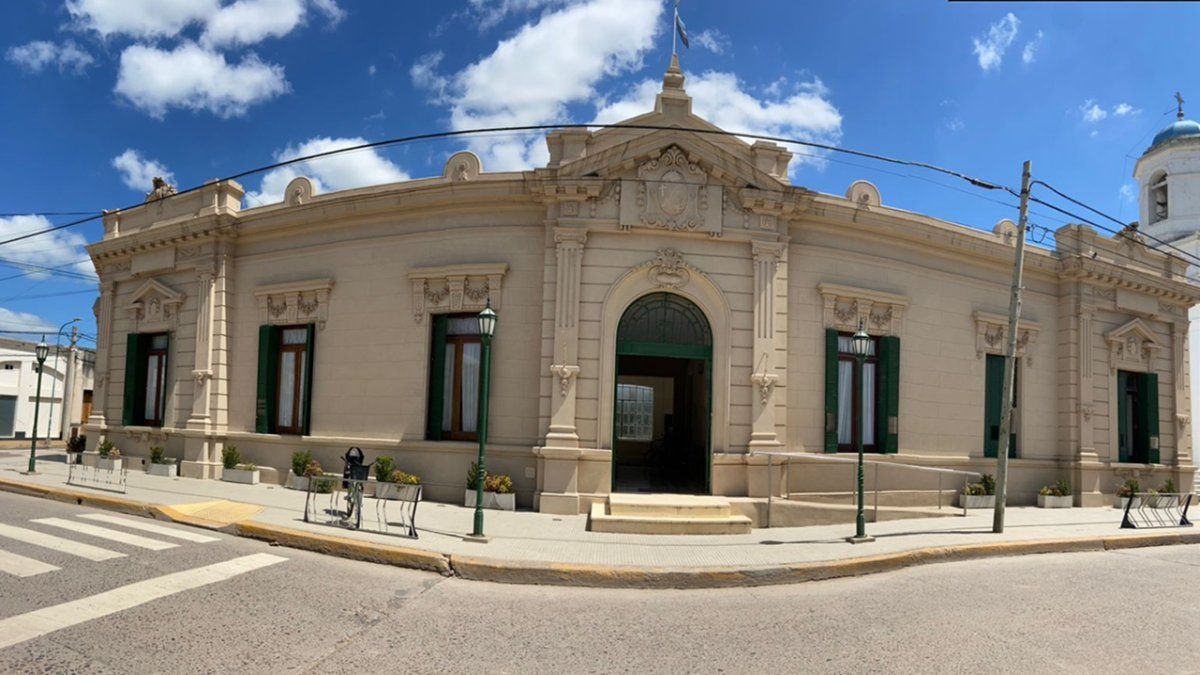Image: VOLKER WEIHBOLD
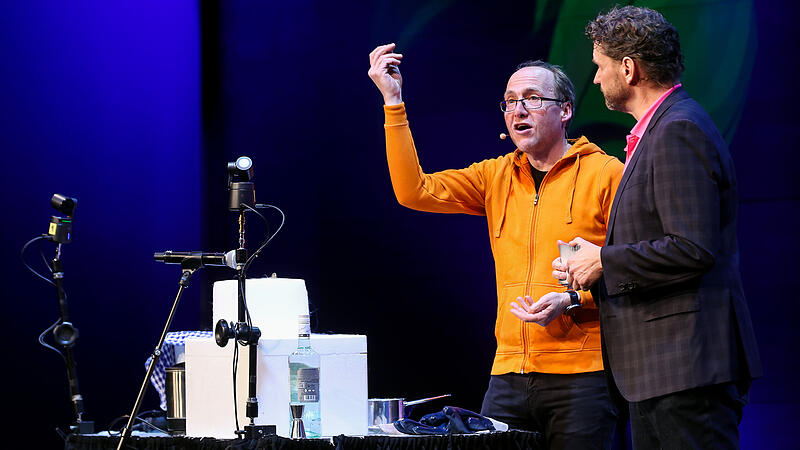
Image: VOLKER WEIHBOLD
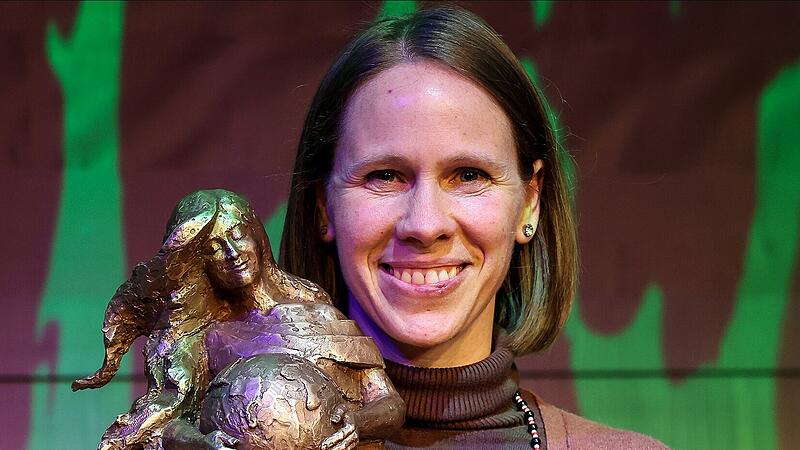
Image: VOLKER WEIHBOLD
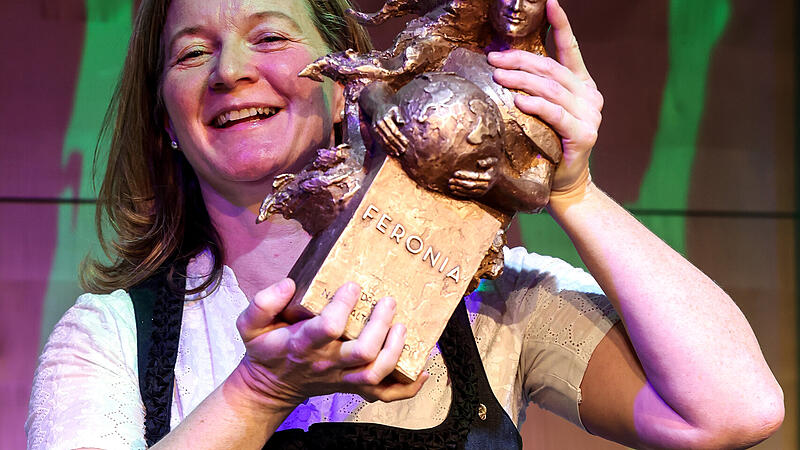
Image: VOLKER WEIHBOLD
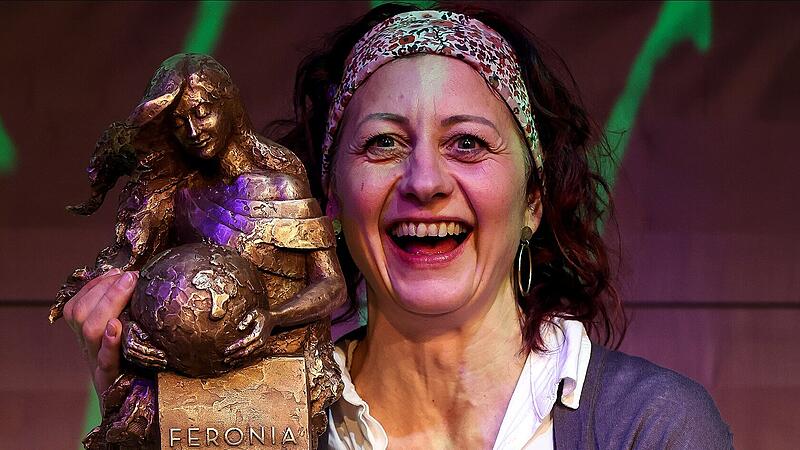
Image: VOLKER WEIHBOLD
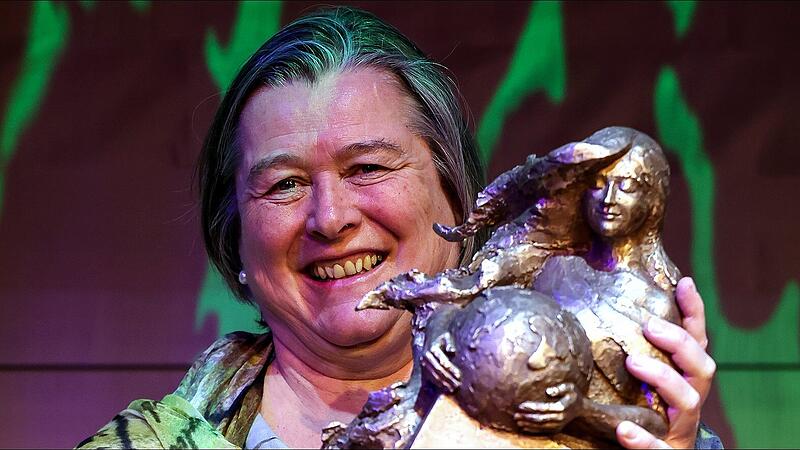
Image: VOLKER WEIHBOLD
The Feronia 2024 sustainability prize was awarded for the second time on Thursday in four categories. The winners: Schachinger Logistik in Hörsching, Hueck Folien in Baumgartenberg, the Kleinstadtbiotop Vöcklabruck association and the elementary school 4 Wels-Pernau.
“A wonderful example of what is happening in the country when it comes to sustainability,” said Oberbank General Director and host Franz Gasselsberger about the almost 200 Feronia submissions. The winners were honored at a celebratory gala in the Oberbank Forum. Their joy and that of the more than 1,000 guests was great. In the future, it would become much more important how much CO2 would be emitted or saved through bank-financed loans, said the bank boss.
“Upper Austria is on the way” towards sustainability, said Governor Thomas Stelzer. One sign of this is that economic growth has become decoupled from energy consumption. But further measures are needed. He defined the “massive strengthening of public transport” as a “major project” for the future.
The deputy OÖN editor-in-chief Dietmar Mascher encouraged the guests to also implement climate protection measures in their private lives. This can be done in a fun way with the “Climate Campaigner” app from the JKU Energy Institute, which has its own OÖN challenges such as “Leave your car parked for a week”. “Start small to achieve big things,” says Mascher.
State Economic Councilor Markus Achleitner (ÖVP) admitted that the path towards a circular economy for Upper Austria is “no problem”, especially for the industrial location. However, he also referred to the “incredible opportunities” provided one does not forget to maintain competitiveness.
Reduce bureaucracy
Jury member Thomas Gaber from KPMG called for a correction in the “regulatory force” of the many sustainability regulations. What is certain is that “non-sustainable companies will not find suppliers and customers in the future.”
The audience was entertained throughout the evening by the band led by the Enns musician Wiff LaGrange and the “Science Busters” with their science cabaret. Martin Puntigam and Florian Freistetter explained humorously and clearly with a dry ice demonstration why it is not a good idea to define Mars as Planet B, as a refuge from climate change on planet Earth, and what the melting of the polar caps of Mars and Earth has to do with that penguin poop effect.
The listeners learned why we can’t drink away climate change with interstellar alcohol, even if it exists in the Milky Way (which should actually be called “Schnapsstrasse”), and that a “repair site from Linz” could possibly be considered a small contribution to climate protection .

Image: VOLKER WEIHBOLD
The winners in portrait
- Sustainable through and through: Schachinger with solutions for storage and transport
“We prove that sustainability not only pays off ecologically, but also economically,” says Johannes Wöckinger, managing director of the traditional logistics company since the beginning of 2023. “The last two years were the best in history. This should be topped again with the latest conclusion .” And this in an industry that doesn’t stand out for its particularly high profit margins. “Yes, we’ve found a way to make it worthwhile.”
The company with 700 employees throughout Austria specializes in industry logistics, the most important division being pharmaceuticals. Medicines are stored and distributed. Temperature management is everything. The warehouse, which is a completely wooden building, is cooled with groundwater. The majority of the electricity requirement is covered by photovoltaic panels that are installed on all roofs at the company headquarters in Hörsching. From September onwards, the heat will come from a biomass power plant.
Electric sprinters have been experimented with for years in transport, and now the first ones are coming into the field, says Wöckinger. Routes of up to 150 kilometers will be changed. For refrigerated transport that requires temperatures between two and eight degrees, tests are being carried out to see how this can work electrically. The first electric trucks are starting on the important Linz-Vienna route and in the greater Vienna area. “Clean transport is becoming more important to customers, which will be a competitive advantage for us.” Five employees deal with a wide range of sustainability topics and can also provide customers with CO2 calculation models. “For a medium-sized company, we are way ahead,” says Wöckinger proudly.

Image: VOLKER WEIHBOLD
- Sustainable products and services: Hueck Folien: “Plastic is part of the solution”
“This is sensational, we are thrilled and proud,” says Martin Bergsmann, spokesman for the management of Hueck Folien in Baumgartenberg. He received the Feronia trophy together with Sabine Grünberger, sustainability manager at Hueck Folien.
The company is a specialist in surface coatings and received the sustainability award for an innovative project in which recycled instead of newly mined aluminum is used for high-gloss metal foils (for example for cosmetic labels). This hasn’t happened before because high-purity aluminum wasn’t available as recycled material. This saves 85 percent of CO2 in comparison. To this end, Hueck has set up a recycling cycle for industrial aluminum scrap.
“Our efforts are bearing fruit,” says Bergsmann. As an industrial company you are often scolded, but this award also shows that you are at the forefront of sustainability. “And plastic is part of the solution to the transformation, not part of the problem.” In the future, Hueck Folien also plans to use aluminum scrap from household collections.
Last year the company generated around 60 million euros in sales with 300 employees. The environment is currently challenging, but we are broadly positioned, says Bergsmann. Hueck Folien is active in the areas of self-adhesive labels, furniture/household appliances, buildings and banknotes.

Image: VOLKER WEIHBOLD
- Diversity of sustainability: “We want to be a social encounter program”
There has been a new offer for shopping, dining and meetings in Vöcklabruck since last year: In October 2023, the association of the same name opened the “small town biotope” in an empty building. Pizzeria De Michele was integrated into the concept, a café turned vegetarian restaurant. Nine small businesses have come together in the “Market Hall”: They offer sustainable and regional products. Not all owners always have to be present: “The operators take turns on a daily basis. One takes over the cash register, for which separate software has been programmed. The item sold is attributed to the respective company,” says chairwoman Petra Wimmer. Toys, gifts, jewelry, handicrafts and delicacies are on offer.
Integration is also an important part of the “small town biotope”: On the one hand, products manufactured by Lebenshilfe are also sold there, and on the other hand, people with disabilities who are looked after by Lebenshilfe work in the “small town biotope”: “Four are there permanently, explain for example visitors to the project and take over the telephone service and help in the catering. They are indispensable for us,” says Wimmer.
The “small town biotope” also includes open spaces that those interested can rent cheaply. “We want to be a social encounter program without pressure to consume. The idea shouldn’t be limited to the location,” says Wimmer. In a first step, it should be expanded to Vöcklabruck and then to other communities: “Many people struggle with vacancies, and loneliness is also a big issue.” -

Petra Wimmer, chairwoman of the “Kleinstadtbiotop Vöcklabruck” association, lifts the Feronia statue, which weighs eight kilograms
Image: VOLKER WEIHBOLD
- Learning and teaching sustainably: Practice climate protection early – even in elementary school
Every Monday there is a “free day” at elementary school 4 in Wels-Pernau – but the more than 300 students don’t have a day off. They work on a variety of projects across classes and ages for two hours without a fixed teaching structure.
These are based on the 17 Sustainable Development Goals (SDGs) of the United Nations: These include, for example, the protection of ecosystems and water bodies. Specifically, this means visits to the wastewater association, the world store or the waste collection center, where the elementary school students come into contact with the topic of circular economy. Numerous projects have a lasting impact on everyday school life: a system for separating waste, including a compost heap, was established in the school garden. Clothes swap parties are organized with the parents’ association. Nature and animal protection go hand in hand: nesting boxes were designed for swifts.
Cycling is also encouraged in the elementary school, which is run by director Elke Leitner-Kraml. She has organized this form of collaborative learning and wants to expand it to four hours per week. For the little ones, climate protection should become a matter of course in a playful way: “We are inspired by the children’s reaction. What we accomplish every day simply makes sense,” says teacher Lucia Weber. The concept of “Frei-Day” was adopted from Germany. The prize money should be used for projects that incur additional costs. -

Elke Leitner-Kraml, director of elementary school 4 in Wels-Pernau
Image: VOLKER WEIHBOLD
more from reports

